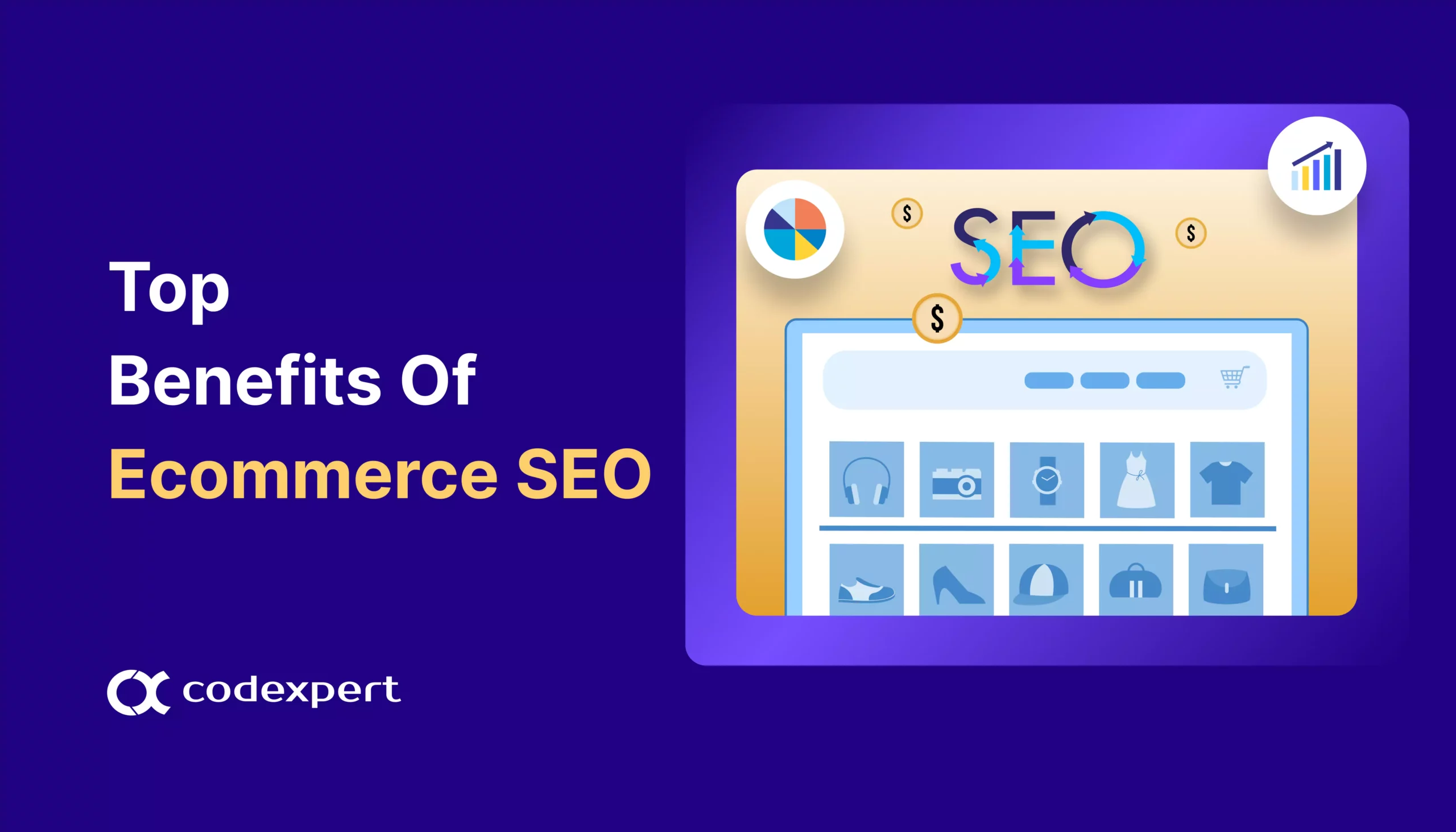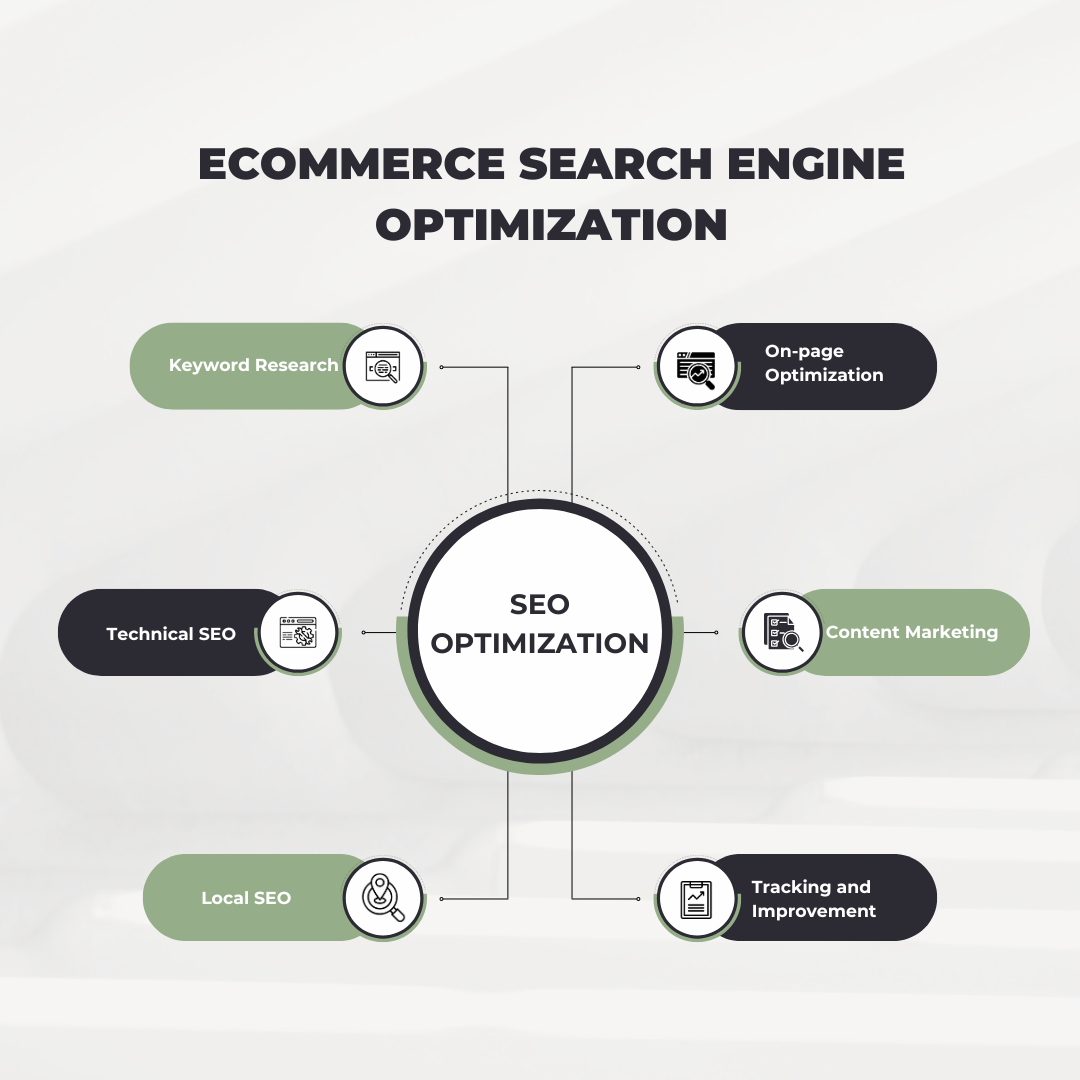Top 8 Benefits of Ecommerce SEO in 2025

As ecommerce owners, we often focus on generating revenue for our business. In doing so, we sometimes overlook the importance of search engine optimization (SEO). However, prioritizing SEO can be one of the most rewarding decisions you can make for your online store.
In this article, we’ll dig deep into what SEO is and highlight the key benefits of ecommerce SEO. Let’s begin!
What is Ecommerce Search Engine Optimization?
Before diving into the benefits of ecommerce SEO, let’s take a moment to understand what it truly means.

Ecommerce SEO involves optimizing an online store to improve its visibility in search engine results. The primary goal is to drive more organic traffic to your website, increasing the likelihood of conversions and sales.
The main components of ecommerce SEO include:
- Keyword Research: Finding the right keywords to target your audience.
- On-page Optimization: Enhancing your site’s content and structure.
- Technical SEO: Ensuring your site performs well and is easy for search engines to crawl.
- Content Marketing: Creating valuable content to attract and engage users.
- Off-Page SEO: Building links and boosting your site’s authority.
- Local SEO: Targeting local customers effectively.
- Tracking and Continuous Improvement: Monitoring performance and making necessary adjustments.
Next, we’ll explore the benefits of ecommerce SEO and how to achieve the best results.
8 Benefits of Ecommerce SEO
Lets explore the top 8 reasons for you to start implementing ecommerce SEO-
1. Better Visibility in the Digital Market
Your ecommerce website serves as the digital storefront on the bustling streets of the internet. Search Engine Optimization (SEO) acts as the vibrant billboard guiding potential customers to your business. When executed effectively, SEO enhances your store’s visibility, especially when your target audience is actively searching products that matches your offerings.
According to Google, 51% of shoppers use Google to research a purchase they plan to make online. This means the more relevant impressions your store gets, the higher the chances of attracting visitors and, eventually, making sales.
Suppose an online store sells handmade leather wallets. Without proper SEO, potential customers searching for “handcrafted leather wallets” would never find the store. However, with proper SEO optimization, the store could appear on the first page of search results, dramatically increasing its chances of being discovered.
2. Reaches the Right Intented Customers
SEO helps connect you with customers who are actively searching for your product. SEO excellence lies in understanding and matching this search intent. This matching process involved three key types of intent.
- Informational Intent: When someone searches “how to choose running” they are gathering information. Your detailed buying guide will show at the top of your blog intent is the same.
- Commercial Intent: If someone is searching for “ best running shoes for marathon training” indicate someone is comparing options. Your detailed buying guide can attract these researchers who may later become customers.
- Transactional Intent: And if someone searches like “buy Nike Air Zoom Pegasus 38”, they are presumely ready to purchase. Your optimized product pages will appear for these high-value searches.
3. Builds Trust and Credibility
When your ecommerce site consistently appears in search results and provides valuable content, it builds trust with both customers and search engines.
For example, if your kitchenware store regularly publishes well-researched buying guides about cookware materials or detailed product comparisons, visitors begin to view your site as an authoritative source in the kitchen equipment niche. This established credibility often translates into higher customer confidence and increased sales.
Trust in ecommerce is built through consistent demonstration of expertise and reliability. SEO supports this in several ways:
Content Authority: When your site regularly publishes high-quality, accurate information, search engines recognize it as authoritative. A kitchen supply store might publish detailed articles about knife care, cooking techniques, and equipment maintenance, establishing itself as a trusted resource.
Social Proof: SEO-optimized customer reviews, testimonials, and user-generated content help build trust through real customer experiences. For instance, a mattress company might optimize its review pages to appear in searches like “best memory foam mattress reviews.”
Technical Reliability: Good SEO practices include improving site speed, security, and user experience – all factors that contribute to trustworthiness. When a customer sees your site loads quickly, works smoothly, and protects their information, they’re more likely to trust you with their purchase.
4. Improves Brand Awareness Though Consistent Presence
Ecommerce SEO helps your business create a strong brand presence through multiple channels:
Content Diversity: Different content types (blogs, videos, guides) optimized for various keywords help your brand appear in different contexts. A sustainable fashion brand might appear in searches ranging from “eco-friendly clothing care” to “sustainable fashion brands 2025.”
Local SEO: For businesses with physical locations, local SEO ensures visibility in “near me” searches and Google Maps results. A specialty tea shop would appear in both “organic tea online” and “tea shop near me” searches.
Featured Snippets: Optimizing for featured snippets (the boxes at the top of search results) can make your brand the immediate answer to common questions in your niche.
If your site has high SEO rankings, it can influence future buying decisions. Even if customers don’t buy from you today, they may consider you first next time they are ready to make a purchase.
5. Brings Quality Organic Traffic
One of the biggest perks of ecommerce SEO is its ability to attract high-quality organic traffic and visitors who are genuinely interested in your products.
By optimizing your site with targeted keywords, your stores appear in front of people searching for exactly what you offer. This means you are not just getting more visitors, but the right ones who are more likely to make purchases from you.
6. Increases Sales and Revenue
When you attract the right audience to your online store, the chances of converting them into customers increase significantly.
More organic traffic translates to more potential buyers, which in turn boosts sales and revenue. Unlike paid ads that stop delivering results as soon as the budget runs out. But SEO provides a steady flow of potential customers over time, offering a higher return on investment.
7. Improves Search Engines Rankings
SEO plays a vital role in enhancing your ecommerce website’s search engine rankings. It ensures that your products and content appear prominently in relevant search results.
Google will rank your website based on your site’s relevance, authority, and user experience. With effective SEO strategies such as optimizing keywords, improving site speed, and ensuring mobile friendliness.
By optimizing your site with strategic keywords, improving technical aspects like page speed and mobile responsiveness, and creating valuable content, SEO increases your visibility to potential customers. Higher rankings not only lead to increased organic traffic but also boost your brand’s credibility and trustworthiness.
As your website consistently appears in top positions, it becomes easier to attract and convert visitors into loyal customers. This ultimately results in long-term growth and success.
8. Long-Term Benefits
Once your website is optimized, it generates organic traffic, improves rankings, and boosts sales with minimal ongoing effort.
Investing in SEO for your ecommerce business offers numerous long-term advantages that go far beyond immediate results. Unlike paid advertising, which stops delivering as soon as the budget runs out, SEO provides a sustainable stream of organic traffic from users actively searching for your products.
Over time, it enhances your brand authority by building trust and credibility with both customers and search engines. The cumulative nature of SEO ensures a compounding return on investment, while its focus on user experience improves site performance, customer satisfaction, and loyalty.
Furthermore, SEO keeps your business adaptable to changing market trends and positions you ahead of competitors. It also offers a cost-effective and scalable foundation for lasting growth and success. By prioritizing SEO, you are making a strategic investment in the long-term future of your ecommerce store.
Wrapping Up
In today’s competitive online marketplace, ecommerce SEO is more than just a strategy, it’s a lifeline for growth, visibility, and success. By optimizing your store for search engines, you not only enhance your website rankings but also build trust, acquire organic traffic, and boost your revenue.
The benefits of ecommerce SEO extend beyond immediate gains. It lays the foundation for sustained visibility, helping your brand stay top-of-mind for customers at every stage of their buying journey. From newcomers in the ecommerce space to established stores aiming to sustain growth, investing in SEO is a long-term strategy that delivers lasting benefits.
The perfect time to harness the power of ecommerce SEO is right now. So, use ecommerce SEO to turn your store into a customer-focused business and attract a constant flow of audience and profits.
Frequently Asked Questions (FAQs)
Q. How important is SEO in ecommerce?
SEO is crucial for ecommerce as it drives organic traffic, enhances visibility, and increases sales. With billions of searches happening daily, effective SEO ensures your products rank higher on search engines. This will attract potential customers and give you a competitive edge. It’s essential for long-term growth and cost-effective customer acquisition.
Q. Who needs SEO?
SEO benefits businesses and individuals aiming to improve online visibility. This includes:
- Ecommerce stores: To rank your store products and boost sales.
- Small businesses: To complete locally and attract customers.
- Bloggers and Content Creators: To grow audiences.
- Corporations: To maintain dominance in their industry.
- Non-profits: To raise awareness and reach their goals.
Q. How do I SEO for an ecommerce website?
It’s easy to do SEO for your ecommerce website. Here are 8 steps to follow:
- Keyword Research: Identify relevant keywords for your products.
- On-Page SEO: Optimize titles, meta descriptions, headers, and product descriptions.
- Site Structure: Create a user-friendly navigation system.
- Technical SEO: Ensure fast loading speeds, mobile optimization, and proper indexing.
- Content Marketing: Publish blogs, guides, and videos to engage users.
- Backlink Building: Gain quality backlinks to improve domain authority.
- Local SEO: Optimize for local searches with Google My Business.
- Continuous Monitoring: Use tools like Google Analytics to track and adjust strategies.
Q. Which Platform is best for SEO?
Platforms like Shopify, EasyCommerce, and Magento excel in SEO capabilities. WordPress, paired with EasyCommerce, is often considered the best for its flexibility, robust plugins like Yoast SEO, and user control. The ideal choice depends on your specific needs and technical expertise.
Subscribe to Our Newsletter
Get the latest WordPress tutorials, trends, and resources right in your inbox. No Spamming, Unsubscribe Anytime.

Thank you for subscribing to our newsletter!
Table of Content
- What is Ecommerce Search Engine Optimization?
- 8 Benefits of Ecommerce SEO
- 1. Better Visibility in the Digital Market
- 2. Reaches the Right Intented Customers
- 3. Builds Trust and Credibility
- 4. Improves Brand Awareness Though Consistent Presence
- 5. Brings Quality Organic Traffic
- 6. Increases Sales and Revenue
- 7. Improves Search Engines Rankings
- 8. Long-Term Benefits
- Wrapping Up
- Frequently Asked Questions (FAQs)
- Q. How important is SEO in ecommerce?
- Q. Who needs SEO?
- Q. How do I SEO for an ecommerce website?
- Q. Which Platform is best for SEO?













